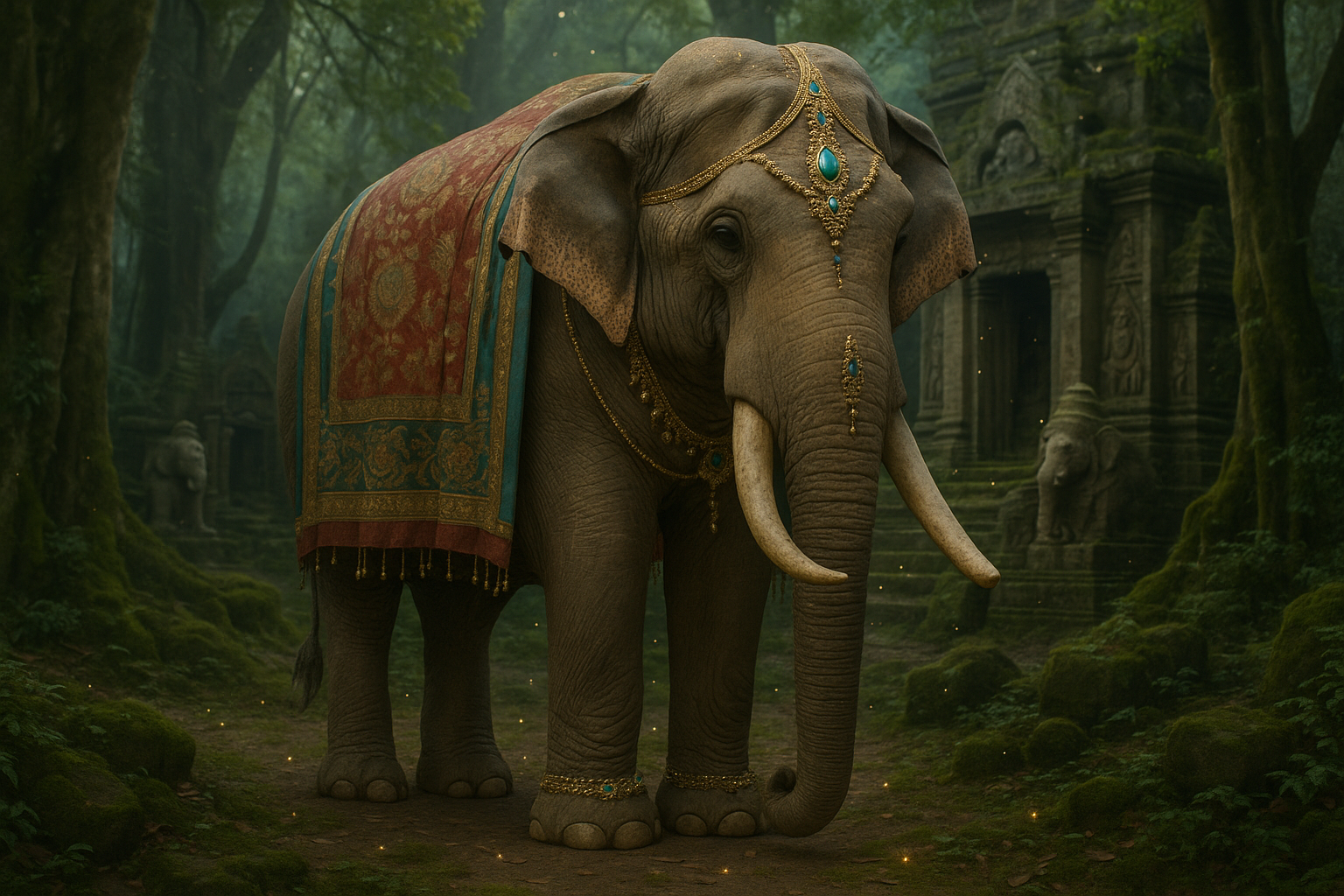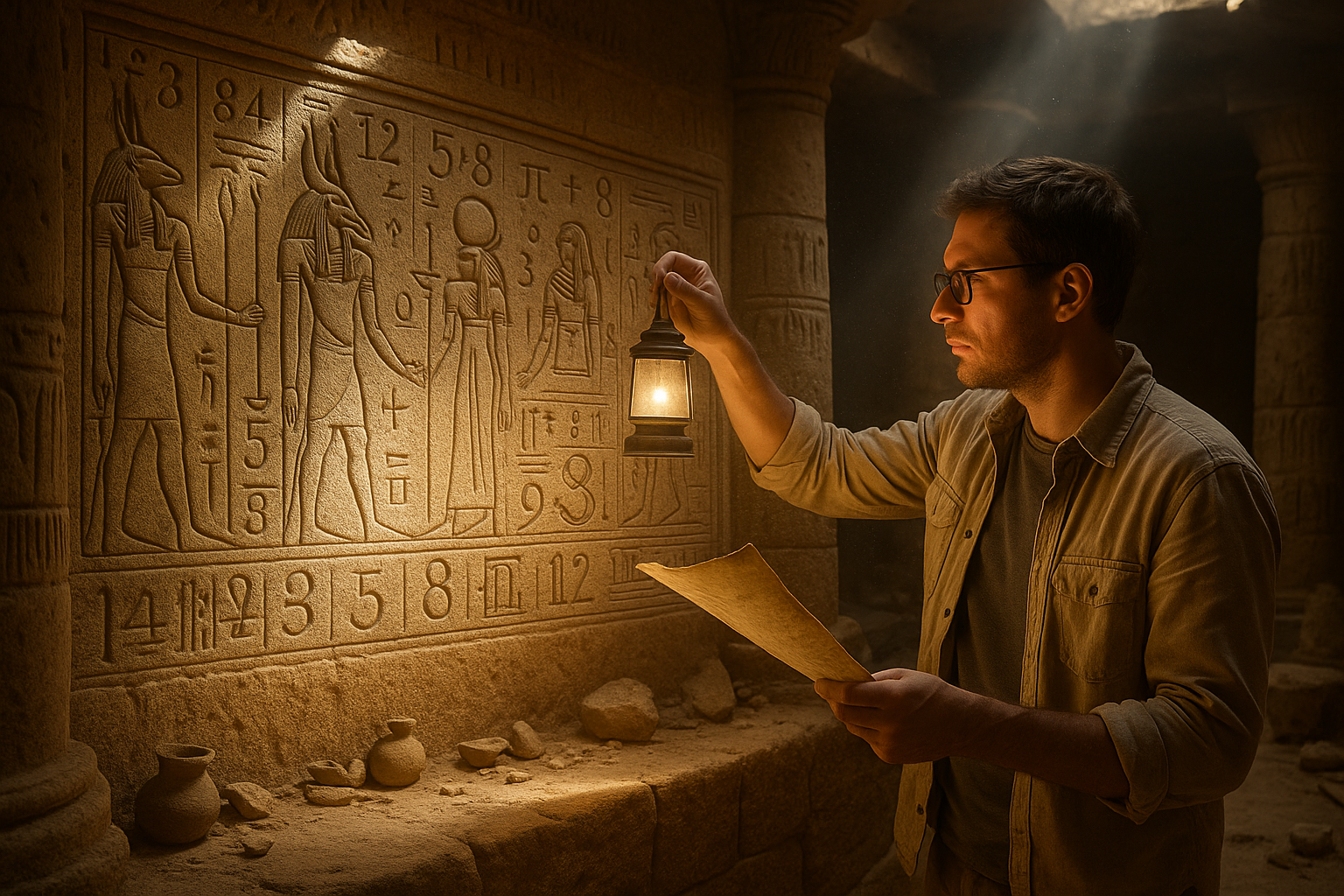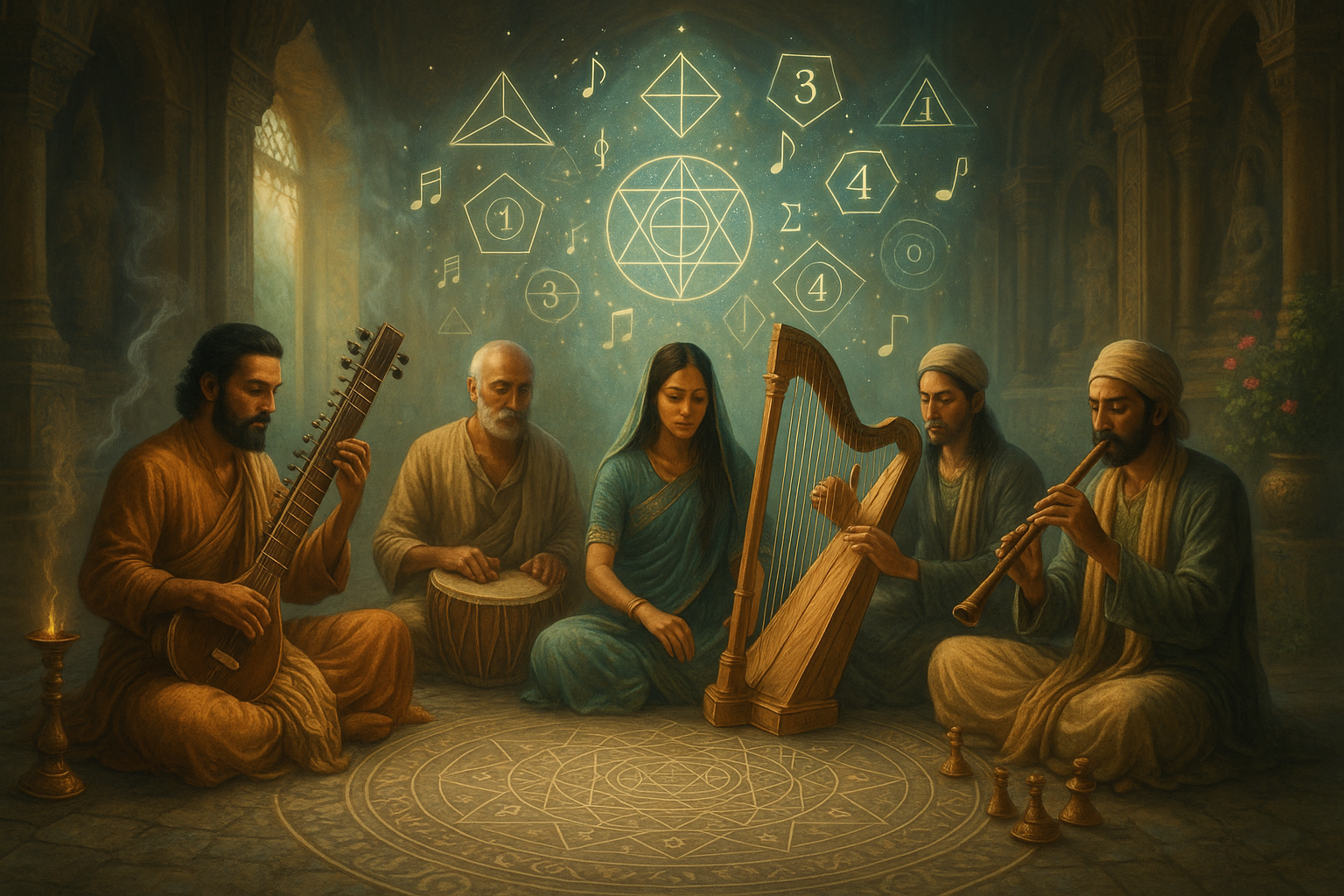Throughout the ages, across continents and cultures, elephants have captured the human imagination like few other creatures. These majestic beings, with their grandiose presence and profound wisdom, have not only roamed the earth but have also traversed the realms of mythology and folklore, leaving an indelible mark on the stories that shape our understanding of the world. 🐘
In every corner of the globe, from the lush forests of India to the vast savannas of Africa, elephants have been revered as sacred symbols of power, wisdom, and memory. They have played divine roles in numerous mythologies, serving as the bearers of gods, the keepers of ancient wisdom, and the harbingers of change. But why have elephants been elevated to such heights in our collective stories? What is it about these creatures that inspire such reverence and awe?
In this exploration of “Divine Giants: Exploring the Sacred Role of Elephants in Mythology and Folklore,” we will embark on a journey through time and space, delving into the myriad ways elephants have been perceived and portrayed across different cultures. This article will unravel the intricate tapestry of legends and beliefs that surround these magnificent creatures, providing insights into how they have come to embody so many virtues and ideals.
One of the most fascinating aspects of elephant mythology is the remarkable consistency of themes and symbols across diverse cultures. Despite geographical distances and cultural differences, elephants often represent similar concepts such as strength, wisdom, and protection. In Hindu mythology, for instance, the elephant-headed god Ganesha is worshipped as the remover of obstacles and the patron of arts and sciences. His image, with the head of an elephant and the body of a human, symbolizes the harmonious blend of physical and intellectual prowess.
Meanwhile, in African folklore, elephants are often seen as wise elders and are revered for their memory and intelligence. They are central figures in many tales that impart moral lessons, emphasizing virtues such as loyalty, leadership, and community. African tribes have long told stories of elephants leading migrations or protecting villages from danger, showcasing their revered status as guardians of the land. 🌍
The Buddhist tradition also holds elephants in high regard, symbolizing mental strength and stability. The white elephant, in particular, is a symbol of purity and enlightenment. According to Buddhist lore, before Siddhartha Gautama became the Buddha, his mother dreamt of a white elephant, which is interpreted as an auspicious sign of his future greatness. This association underscores the elephant’s role as a spiritual guide, leading humanity towards enlightenment.
In addition to these ancient tales, elephants have also found their way into more contemporary narratives, often serving as poignant symbols of environmental and conservation efforts. As we grapple with the challenges of preserving biodiversity in the modern world, the elephant stands as a powerful emblem of the need to balance human progress with the protection of our planet’s most majestic creatures.
Throughout this article, we will delve deeper into these rich traditions and stories, examining the multifaceted roles elephants play in human mythology and the lessons they impart. We will explore the symbolism behind the elephant’s majestic tusks, the tales of their legendary memory, and the mystical significance of their social behaviors. We will also consider how these ancient stories continue to influence modern culture, from literature and art to cinema and conservation movements. 📚🎨
By understanding the sacred roles elephants have played in our shared mythologies, we can gain a deeper appreciation for their significance in the natural world and the cultural heritage of humanity. So, let us embark on this journey into the heart of elephant mythology, where we will uncover the divine truths hidden within these legendary giants. Through their stories, we will explore the enduring connection between humans and these magnificent creatures, a bond that transcends time and space, inspiring us to look beyond the horizon towards a world where nature and culture coexist in harmony.

Conclusion
## Conclusion
Throughout history and across cultures, elephants have transcended their earthly existence to become powerful symbols in our collective mythology. From the Hindu deity Ganesha removing obstacles from our paths to the celestial elephants supporting the very fabric of the cosmos, these magnificent creatures have captured human imagination in ways few other animals have managed. Whether appearing as wise guardians in African folklore, shape-shifting spirits in Asian legends, or divine vehicles carrying gods across the heavens, mythical elephants reveal our deepest values about wisdom, strength, memory, and the sacred connection between humans and nature.
What makes these stories particularly fascinating is how they mirror the actual remarkable qualities of elephants themselves. Their legendary memory isn’t entirely myth—elephants genuinely possess extraordinary cognitive abilities and can remember locations, individuals, and experiences across decades. Their association with wisdom reflects their complex social structures, their capacity for empathy, and their sophisticated communication methods. In this way, the mythical and the real beautifully intertwine, with ancient storytellers perhaps intuitively recognizing the exceptional nature of these animals long before modern science could confirm it.
As we face a world where real elephants struggle for survival against habitat loss and poaching, these ancient myths take on renewed significance. They remind us that humans once revered elephants as sacred beings worthy of protection and respect. Perhaps by reconnecting with these timeless stories and the profound truths they contain, we can rediscover our role not as dominators of nature, but as guardians of these magnificent creatures who have walked alongside humanity through millennia of stories, dreams, and legends. The mythical elephants of our ancestors call us to ensure that their living descendants continue to thunder across this earth for generations yet to come.
Toni Santos is a symbolic researcher and esoteric scholar specializing in the study of animal symbolism in spiritual traditions, hidden alphabets and ciphers, numerological systems of antiquity, and the geometric patterns that connect the cosmos to sacred art. Through an interdisciplinary and mystical-focused lens, Toni investigates how humanity has encoded divine knowledge, cosmic order, and spiritual mystery into symbols — across cultures, myths, and secret teachings. His work is grounded in a fascination with symbols not only as visual forms, but as carriers of hidden meaning. From ancient numerological wisdom to totemic creatures and sacred geometric codes, Toni uncovers the visual and symbolic tools through which cultures preserved their relationship with the spiritual unknown. With a background in esoteric semiotics and sacred tradition history, Toni blends visual analysis with archival research to reveal how symbols were used to shape identity, transmit memory, and encode sacred knowledge. As the creative mind behind imansy.com, Toni curates illustrated symbol studies, esoteric pattern analyses, and spiritual interpretations that revive the deep cultural ties between animals, hidden scripts, and forgotten wisdom. His work is a tribute to: The sacred meaning of Animal Symbolism in Spiritual Lore The encrypted systems of Hidden Languages and Secret Alphabets The ancient calculations of Numerology in Ancient Traditions The universal design language of Sacred Geometry and Cosmic Patterns Whether you're a spiritual seeker, symbolic researcher, or curious gatherer of esoteric wisdom, Toni invites you to explore the hidden layers of sacred knowledge — one symbol, one cipher, one pattern at a time.




